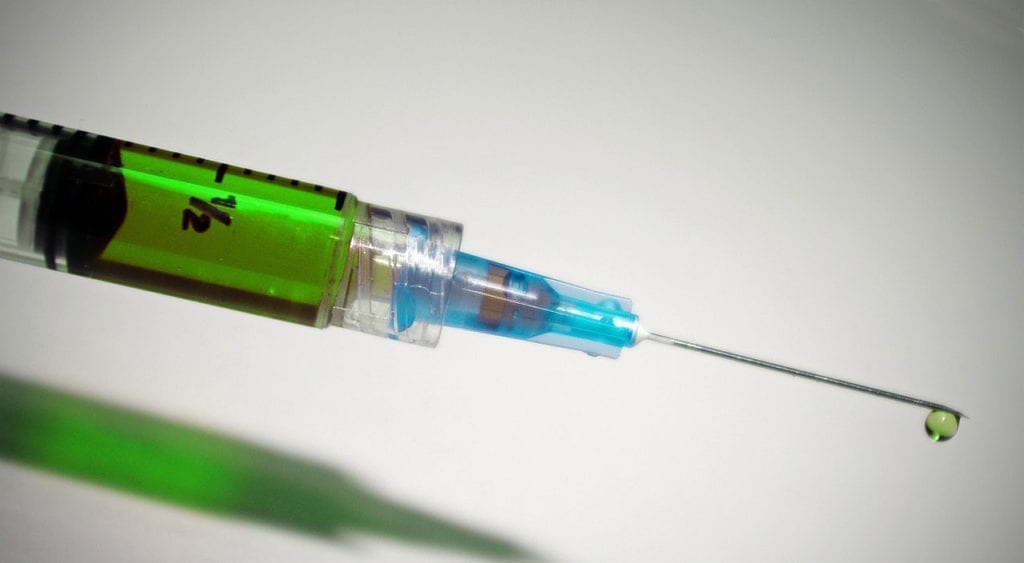Between August 29 and September 1, researchers joined in at ESC 2020 – The Digital Experience, developed and organized by the European Society of Cardiology (ESC). During this online conference, biotechnology company Amgen presented positive data from the Phase 3b HAUSER-RCT trial. Overall, HAUSER-RCT was designed to analyze the safety, efficacy, and tolerability of Repatha (evolocumab) for pediatric patients with heterozygous familial hypercholesterolemia (HeFH). According to Amgen, Repatha reduces low-density lipoprotein cholesterol (LDL-C) in conjunction with other therapies.
HAUSER-RCT Trial
The Phase 3b, double-blind, placebo-controlled HAUSER-RCT trial highlighted the safety, efficacy, and tolerability of Repatha for patients aged 10-17 with HeFH. Altogether, the trial took place over a 24-week (5.5 month) period. 157 patients participated. Of these, 104 (66%) received 420mg of Repatha subcutaneously each month. Alternately, 53 patients (34%) received a placebo. The primary endpoint was a lower percentage of LDL-C.
On average, patients receiving Repatha lowered LDL-C by 38.3% when compared to placebo. The therapy was safe and well-tolerated. Adverse reactions included headache, the flu or a similar illness, rash, back pain, constipation, upper respiratory infections, and a sore throat.
Repatha Information
So what is Repatha (evolocumab)? It is a human monoclonal antibody designed to inhibit pro protein converts subtilisin/kexin type 9 (PCSK9). According to the National Cancer Institute, human monoclonal antibodies are:
A type of antibody made in the laboratory by combining a human antibody with a small part of a mouse or rat monoclonal antibody. The mouse or rat part of the antibody binds to the target antigen, and the human part makes it less likely to be destroyed by the body’s immune system.
In this case, Repatha binds to PCSK9. According to the Genetics Home Reference, PCSK9 controls LDL receptors:
The number of low-density lipoprotein receptors on the surface of liver cells determines how quickly cholesterol is removed from the bloodstream. The PCSK9 protein breaks down low-density lipoprotein receptors before they reach the cell surface, so more cholesterol can remain in the bloodstream.
So, by binding to PCSK9 and stopping it from circulating or binding to LDL receptors, Repatha lowers LDL-C levels. Currently, the therapy is approved for use in over 70 countries. In Europe, it is also approved for the treatment of homozygous familial hypercholesterolemia. The recommended dose is either 140mg/bi-weekly or 420mg/monthly.
Heterozygous Familial Hypercholesterolemia (HeFH)
Heterozygous familial hypercholesterolemia (HeFH) is one of the main forms of familial hypercholesterolemia (FH), an inherited genetic disorder causing extremely high cholesterol. In particular, HeFH causes excess low density lipoprotein cholesterol (LDL-C) that the liver cannot regulate. LDL is usually thought of as “bad cholesterol,” in comparison to high density lipoprotein (HDL). This causes patients to be at an increased risk of cardiovascular issues, such as heart attacks, even if otherwise healthy. In fact, having FH significantly raises the risk of heart disease.
Because HeFH is autosomal dominant, it only takes one mutated gene to inherit the condition. An estimated 1 million U.S. citizens have some form of FH. However, diagnoses are infrequent. HeFH is more common than the other form of FH, homozygous familial hypercholesterolemia. Without treatment, HeFH can cause peripheral vascular disease, coronary artery disease, and cerebrovascular disease. Symptoms of HeFH, if present, include:
- High LDL levels
- Xanthomas – yellow or orange bumps under the skin formed by clumps of extra cholesterol
- These are usually found on the hands, knees, feet, elbows, and butt.
- Pain and swelling in your Achilles tendon
- Xanthelasmas, or xanthomas on your eyelids
- Corneal arcus, or a white or gray ring around the iris from extra cholesterol
However, if you have HeFH, some symptoms can indicate greater complications. If you experience the following symptoms, it could signify a heart attack or stroke. Please see a doctor immediately:
- Chest, neck, and arm pain
- Nausea
- Vomiting
- Fatigue
- Shortness of breath or difficulty breathing
- Balance issues
- Arm and leg weakness
- Difficulty speaking
Learn more about HeFH.





